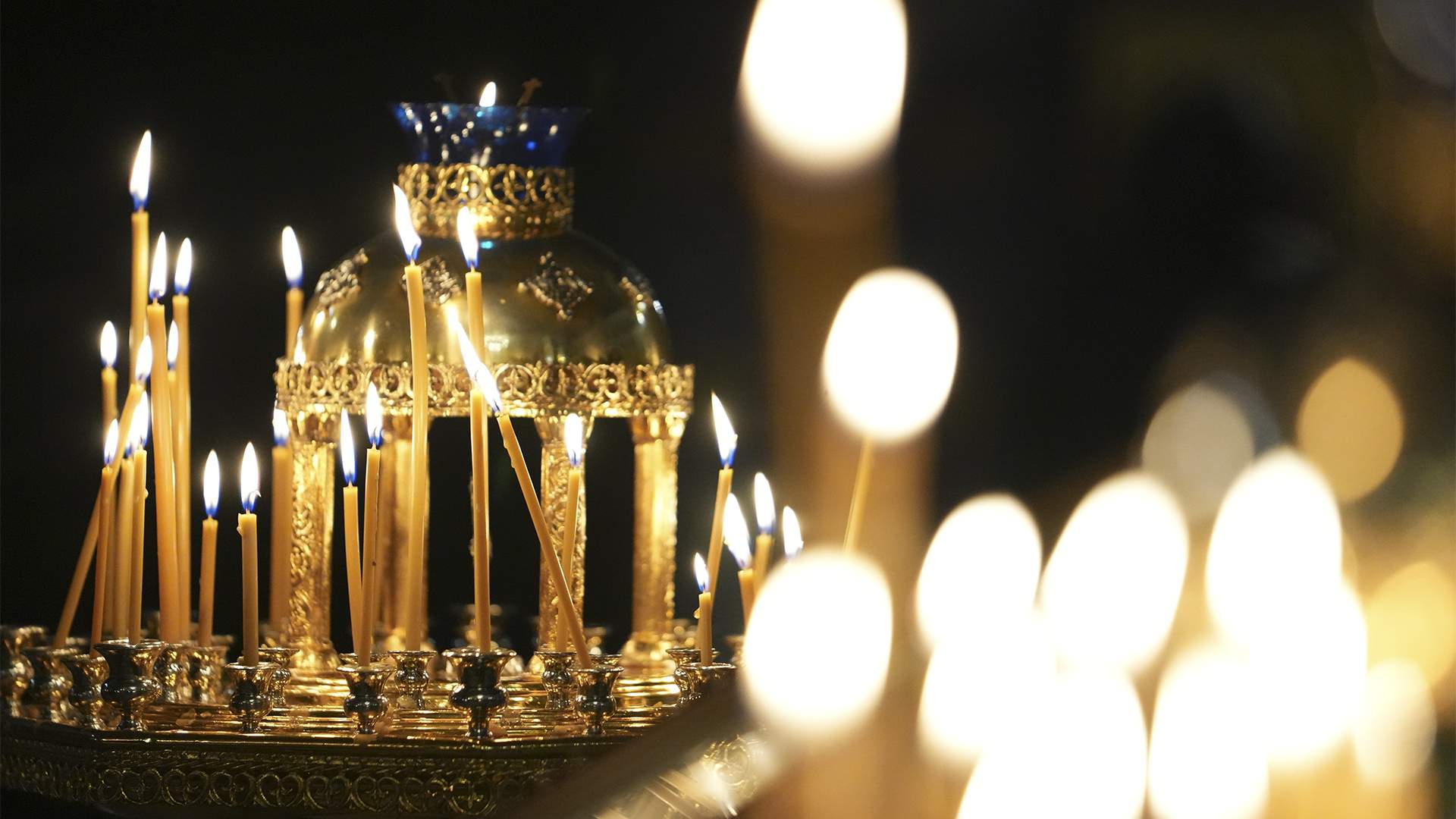- Статьи
- Local news
- Ephraim's Day: how today not to attract poverty, prohibitions and omens on February 10
Ephraim's Day: how today not to attract poverty, prohibitions and omens on February 10

Every year on February 10, the Orthodox Church honors the memory of St. Ephrem the Syrian, the theologian and teacher of the ancient Christian Church. The commemorative date is popularly known as Ephrem's Day. In 2025 the holiday falls on Monday. In Russia on this day they watched the weather and engaged in winter troubles before the beginning of spring. History and traditions of an important Orthodox date - in the material "Izvestia".
Ephraim's Day: what holiday February 10
Ephraim's Day is a folk-Orthodox holiday celebrated on February 10 (New Style) in memory of St. Ephraim the Syrian (Syrian). In the church calendar it is listed as a day of remembrance of the saint, one of the greatest theologians, writers and poets of the ancient Christian world.
Ephraim the Syrian is honored as a great teacher of the Church, known for his spiritual works, penitential hymns and interpretations of the Holy Scriptures. He was and remains a vivid example of humility, asceticism and depth of faith. His "Penitential Prayer", which is read during the Great Lent, occupies a special place in the Orthodox tradition.
The most powerful prayer of Ephrem the Syrian
O Lord and Master of my life, do not give me the spirit of idleness, despondency, covetousness and idle talk.
But give me the spirit of chastity, humility, patience and love, Thy servant.
O Lord, O King, grant me to see my trespasses and not to condemn my brother, blessed art thou for ever and ever. Amen.
O God, cleanse me, a sinner.
St. Ephrem the Syrian was born around the year 306 in the city of Nisibis (modern Nusaybin, in Turkey, near the Syrian border). The city was under the influence of the Roman Empire at the time and was an important center of Christianity.
According to tradition, Ephrem's parents were Christians, but some sources claim that his father may have been a pagan. Already in his youth, young Ephrem was noticed by Bishop Jacob of Nisibis. He later became the spiritual mentor of young Sirinus.
Under the guidance of St. James, the young man studied the Holy Scriptures, theology and preaching. When the Sassanid Persian Empire began to conquer Roman territories, Nisibis was besieged, and St. Ephrem, along with Christians, defended the city. He witnessed many calamities that formed the basis for his future writings on grief, humility, and faith.
After the Persians captured Nisibis in 363, Ephrem left the city and settled in Edessa (modern-day Şanlıurfa, Turkey), where he spent the rest of his life. In Edessa he settled in a small cave near the city. He was not a priest, but served as a deacon and preacher.
St. Ephrem became famous for his sermons in which he denounced heresies, including Arianism, Gnosticism, and Manichaeism. He wrote many spiritual hymns that became the basis for the Syriac Christian liturgy. His interpretations of the Bible and spiritual teachings had a tremendous influence on Eastern Christianity. Because of the depth of his writings and the beauty of his style, he is called the Syrian David.
During the terrible famine in Edessa (about 372) Ephrem actively helped the needy: he organized food stores, took care of the poor, and served the people. The Monk Ephrem the Syrian died in 373 in Edessa. Before his death he bequeathed not to build him a magnificent tomb, but to bury him as a simple traveler.
For his merits, Ephrem the Syrian was recognized as a saint long before the official process of canonization, which became formalized in later centuries. In the Orthodox Church, he has been honored as a reverend and saint since ancient times. In the Catholic Church, he was officially recognized as a teacher of the Church in 1920 by decree of Pope Benedict XV.
Ephrem's writings formed the basis of the Syriac Christian tradition. He influenced many theologians of the East, including Basil the Great. His style of exposition of divine texts combines poetic imagery and deep mysticism.
The Monk Ephrem is depicted on icons in a dark-colored cassock with a hood (kukol), which symbolizes his secluded life. The main feature of the iconographic image of the saint is his haggard, thin face with deeply sunken eyes. At the same time, Ephrem's gaze on icons is concentrated, penetrating, expressing humility and spiritual wisdom. He is usually depicted with a medium-length beard.
He often holds a scroll or book in his hand, indicating his theological works and penitential hymns. Sometimes the scroll is opened and lines from his prayers are written on it, for example, "Lord and Master of my belly...". Traditionally depicted against a golden background symbolizing divine light. Sometimes a desert or cave is shown behind him where he lived in solitude. The image may differ slightly from Greek and Slavic iconographic traditions.
Customs and traditions of the feast of February 10
On this day it is customary to devote time to prayer and penance, as Ephraim the Syrian himself was famous for his theological writings and deep secluded life. It is believed that a prayer said on this day with sincere repentance is especially powerful. One of the most famous and powerful prayers to St. Ephrem the Syrian is the Penitential Prayer, which is recited during Lent. It helps to purify the soul, get rid of sinful thoughts and strengthen faith.
It is also recommended to do good deeds, help the needy, give alms. This day is associated with the care of the house, so housewives were usually engaged in cleaning, getting rid of garbage, sanctifying the house with holy water to expel the evil power and attract prosperity. Men could repair utensils, mend clothes and shoes, but without noise and fuss.
It was believed that on this day it was forbidden to swear, quarrel, malign and condemn, otherwise a man himself will attract misfortune into his life. It was forbidden to be lazy and indulge in idleness, as the day was associated with hard work and spiritual work on oneself. The people believed that if you leave a mess in the house, you can attract poverty and illness.
It is strictly forbidden to engage in hard physical labor, especially plowing the land and chopping wood, as it may incur the wrath of heavenly forces. Also avoided were magic, divination and omens, as the day was considered strictly ecclesiastical.
On Ephraim's Day in Russia tried to complete winter work and prepare for spring labor. It was customary to check the stocks of grain and hay, if there was little left, it meant hard times. Women were engaged in yarn and sewing, as it was believed that after the day of Ephraim the Syrian to engage in these crafts is no longer worth it, otherwise the threads will tear, and the fabric will be of poor quality.
Folk omens February 10, on Ephraim's Day
As on the day of any other holiday, Ephrem's Day is associated with a lot of folk omens and superstitions that have survived in the Russian tradition since ancient times or even came from the pre-Christian period, when people believed in natural spirits and magic.
The Russian Orthodox Church (ROC) does not support following pagan omens and superstitions, as they contradict the essence of faith. According to the church's teachings, omens are a form of idolatry because they distract people from the true God.
However, plenty of people continue to believe superstitions and omens formed hundreds of years ago. Weather omens are especially popular.
It was believed that the weather on February 10 could predict what the end of winter and the beginning of spring would be like. Thus, if on this day there were strong frosts, blizzards and blizzards, they expected a late spring. Warm and clear weather, on the contrary, heralded the early arrival of warmth. The wind was also observed: if it was southern, it meant a warm spring, while the northern wind meant that winter would not recede for a long time. Special attention was paid to the sun, if it shone brightly and cloudless, the summer was expected to be productive.
If there was a lot of frost on the trees on that day, the summer would be rainy. Snowfall with large flakes can testify about the imminent warming. If a dog starts whining for no reason, a snowstorm is to be expected. Thunder on this day heralds a stormy spring. If a person yawns a lot on this day, he or she should expect rapid changes in life.
Ephraim's Day is also considered to be a period when unclean forces, especially the domovoi, become active. Domovoi symbolizes the spirit of the dwelling and is its master in folk tradition. Some people imagined the houseboy as a small creature covered with wool, others - tall, black and hairy, able to take on a cat and dog form. According to folk beliefs, no home can exist without a houseboy.
To please the houseboy, on February 10, the Slavs put a plate of milk or porridge near the stove, and also gave the houseboy small gifts. If the inhabitants did not try to please the houseboy, he could break dishes, hide and spoil the things of the owners. It was believed that a cat could make friends with the house cat, so almost every peasant family kept cats. On Ephraim's day it was customary to take special care of cats. People try not to offend them, as it can lead to trouble.
On Ephraim's day, floors were swept with a wormwood broom to protect the house from evil forces. A general cleaning of the house was carried out to attract good luck. To protect the home, people scattered salt in the corners, fumigated the house with wormwood and put amulets of aspen twigs. Women wore their best clothes: it was believed that on Ephraim they should look in the mirror more often after dinner to keep their beauty and youth.
Переведено сервисом «Яндекс Переводчик»







